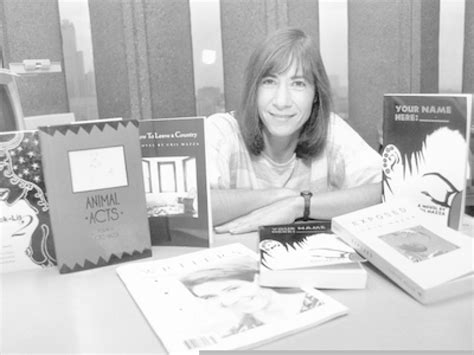A Quote by Simon Toyne
'Sanctus' was done on speculation. I had no agent or publisher. I was being sensible, I suppose, by writing a standalone novel. I figured if that one didn't work, no one would be interested in reading a sequel.
Related Quotes
My father was a writer, so I grew up writing and reading and I was really encouraged by him. I had some sort of gift and when it came time to try to find a publisher I had a little bit of an "in" because I had his agent I could turn to, to at least read my initial offerings when I was about 20. But the only problem was that they were just awful, they were just terrible stories and my agent, who ended up being my agent, was very, very sweet about it, but it took about four years until I actually had something worth trying to sell.
I prefer reading novels. Short stories are too much like daggers. And now that I'm done with my collection I'm more interested in different forms of writing and other kinds of narrative art. I'm working on a screenplay. But when I was working on Eileen, I definitely felt like I was taking a piss. Like, here I am, typing on my computer, writing the "novel." It wasn't that it was insincere, but there was a kind of farcical feeling I had when I was writing.
I never had a plan, except to write. I love what I do, and have from the beginning. Loving what you do makes it a lot easier to work, every day, to face the tough spots and heel in for the long haul. Nothing against plans; they work for some people. But for me, if I'd been planning, worrying about numbers, trying to micro-manage my career, I wouldn't have focused on the writing. If you don't write, you're not read. If you're not read, you don't sell. So that's my Master Plan, I guess. Write the books, let the agent agent, the editor edit, the publisher publish.
It was only after two years' work that it occurred to me that I was a writer. I had no particular expectation that the novel would ever be published, because it was sort of a mess. It was only when I found myself writing things I didn't realise I knew that I said, 'I'm a writer now.' The novel had become an incentive to deeper thinking. That's really what writing is—an intense form of thought.
I know well enough that very few people who are supposedly interested in writing are interested in writing well. They are interested in publishing something, and if possible in making a "killing." They are interested in being a writer not in writing. . . If this is what you are interested in, I am not going to be much use to you.
Many writers will get a contract by selling chapters and outlines or something like that. I wrote the entire novel, and when it was all finished, I would give it to my agent and say, 'Well, here's a novel; sell it if you can.' And they would do that, and it was good because I never had anyone looking over my shoulder.
I was interested in creating things that I could be proud of and so, you know, I was interested in being an editor of a magazine, things that I could be proud of, and so, you know, I was interested in being an editor of a magazine, but in order to be an editor of a magazine I had to become a publisher as well. I had to pay the bills. I had to worry about the printing and the paper manufacturing and the distribution of that magazine.






































